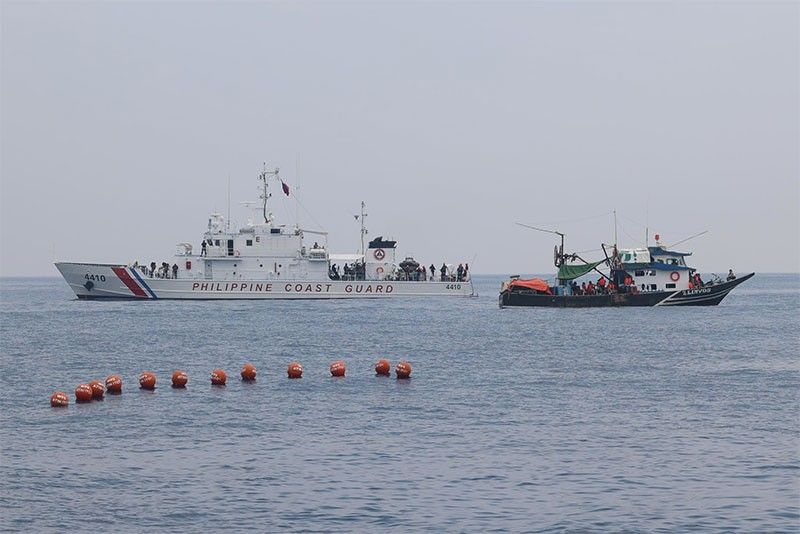Philippine protests China’s fishing ban in South China Sea

MANILA, Philippines — Manila protested yesterday China’s imposition of a unilateral fishing ban in areas in the South China Sea that cover even the Philippines’ territorial waters. The ban is expected to last until Sept. 16.
The Department of Foreign Affairs (DFA) issued a note verbale, saying it was protesting the ban “insofar as it includes the Philippines’ maritime zones over which the Philippines has sovereignty, sovereign rights and jurisdiction.”
“The Philippines protested the People’s Republic of China’s imposition of a unilateral, four-month-long fishing moratorium on 01 May 2024 in areas of the South China Sea north of the 12 degrees North latitude,” the DFA said in a statement.
The Chinese embassy did not comment on the protest.
Based on paragraph 716 of the 2016 arbitral ruling on the South China Sea, Chinese fishing moratorium in areas stretching to the Philippines’ exclusive economic zone, and not limited to Chinese-flagged vessels, is a breach of Article 56 of the 1982 United Nations Convention on the Law of the Sea (UNCLOS) “with respect to the Philippines’ sovereign rights over the living resources of its exclusive economic zone.”
“The Philippines stressed that the unilateral imposition of the fishing moratorium raises tensions in the West
Philippine Sea and the South China Sea, and directly contravenes the understanding between President Ferdinand R. Marcos Jr. and Chinese President Xi Jinping to manage differences through diplomacy and dialogue and to de-escalate the situation at sea,” the DFA said.
Manila has also called on China to “cease and desist from the conduct of illegal actions” that violate the Philippines’ sovereignty, sovereign rights and jurisdiction in its maritime zones.
In its protest, the Philippines also called on Beijing to comply with its obligations under international law, particularly the 1982 UNCLOS and the final and binding 2016 Arbitral Award.
Furthermore, Beijing should adhere to its commitments under the 2002 Declaration on the Conduct of Parties in the South China Sea, the DFA said.
China’s imposition of a fishing ban came after its announcement of a maritime rule empowering its coast guard to detain for 60 days without trial trespassers in waters it claims as its own. China is claiming almost the entire South China Sea.
Manila has warned Beijing of direct violation of international law if it enforces the regulation.
The Chinese coast guard and maritime militias have long been harassing Filipino fishermen in the country’s own territorial waters and had even repeatedly attempted – using powerful water cannons – to prevent the Philippine Coast Guard and the Bureau of Fisheries and Aquatic Resources from delivering food and provisions to troops stationed on the BRP Sierra Madre in Ayungin Shoal.
SMC’s Ang: Protect West Philippine Sea
Meanwhile, San Miguel Corp. (SMC) president and CEO Ramon Ang has urged the government to exert more effort to protect the country’s interests in the West Philippine Sea, which has huge reserves of oil and natural gas.
SMC has interest in the oil industry specifically through Petron Corp., the country’s largest oil firm. It operates the only remaining refinery in the country.
“We do not have oil but we do have very big reserves in the West Philippines Sea. That is why they are very interested in the Philippines,” Ang said during the Philippine Economic Briefing at the Philippine International Convention Center yesterday.
“Let us not let go of it and we should protect our territory,” he added.
The tycoon explained that neighboring Asian countries like Indonesia and Malaysia can afford not to impose taxes on oil because they have vast oil reserves, unlike the Philippines.
“Our neighboring countries are still subsidizing heavily on fuel and power. How are they able to do it? Because Malaysia has its own oil,” Ang said.
“Our oil production is 6,000 barrels only [per day] compared to our neighboring countries averaging one million barrels a day,” he added.
He emphasized that oil prices in the country are high because of taxes that account for a third of the pump price computation. Furthermore, Ang said other countries provide subsidy amounting also to one-third of the pump fuel cost.
“If you look at it on an equal basis, our prices without the subsidy and without the taxes, are even lower than Malaysia, Indonesia and Thailand. It is also the same as power,” Ang said.
“Our power generation compared to our neighboring countries is lower, but we impose taxes on the power sector and on fuel. We do not give subsidies on power and that is why our power prices are higher,” he pointed out.
However, the steep taxes in the country should not deter foreign investors from setting up shop in the Philippines, he stressed.
“You should come and put up your own power generating plant in the factory, which is easy to put up and the Philippine government encourages all big energy consumers to put up,” he said. — Jasper Emmanuel Arcalas, Artemio Dumlao
- Latest
- Trending






























